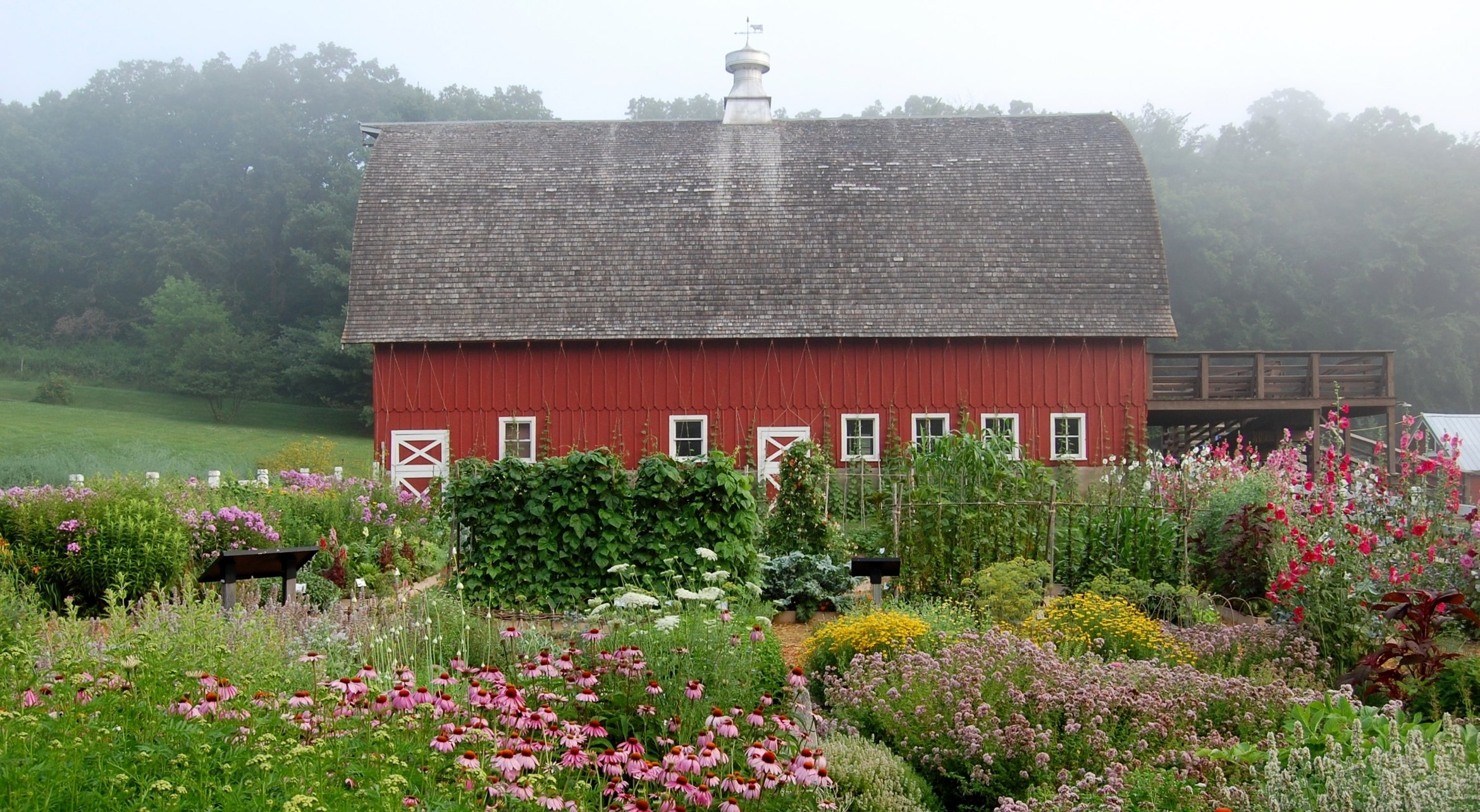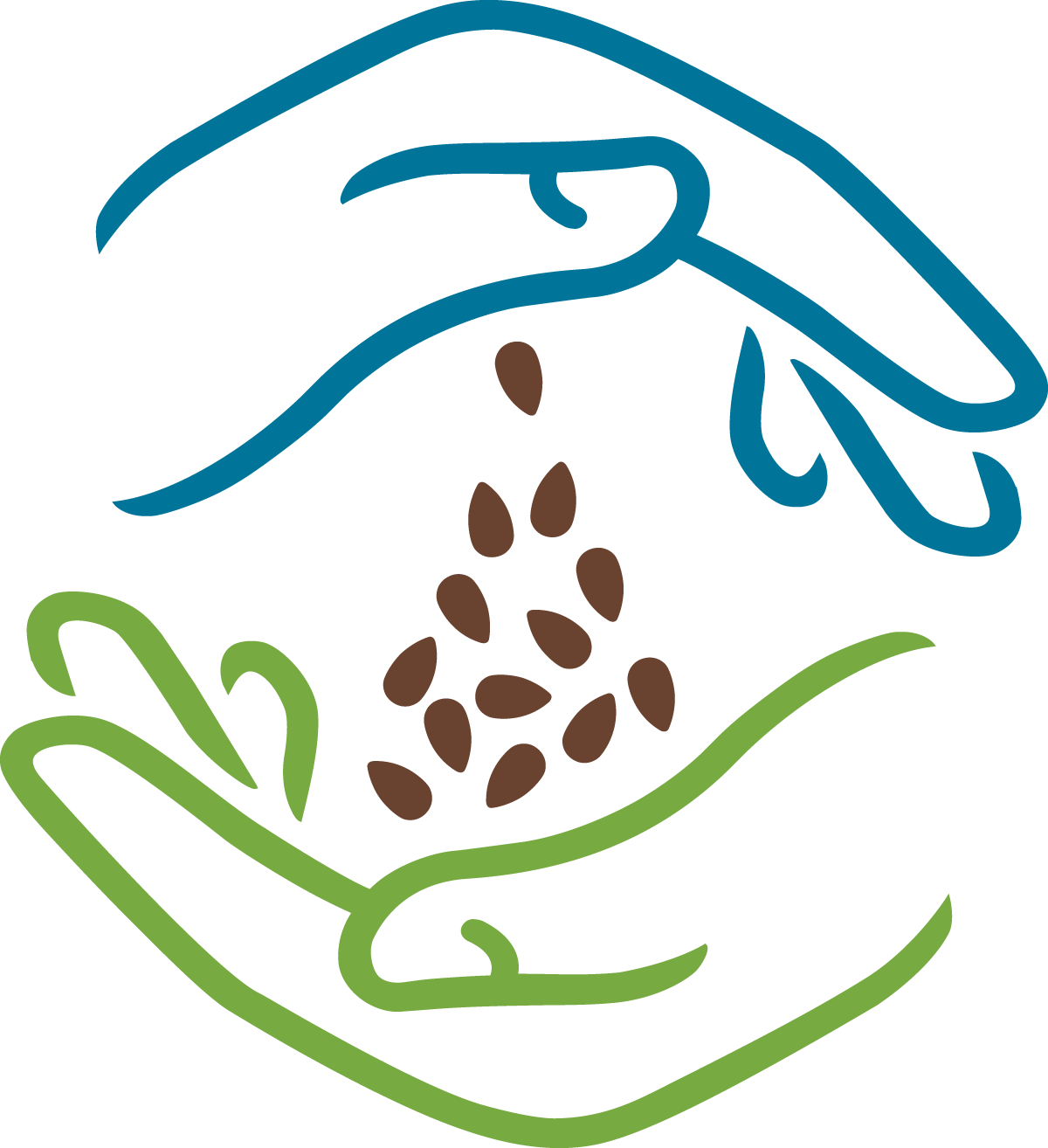Chicken Tractors: Putting Poultry to Work in Your Garden
/Utilizing chickens to make the most of your garden beds
Jim Edrington, SSE facilities manager and chicken tractor enthusiast
One of the duties of the Facilities Department is caring for the heritage breeds of livestock we steward here at Heritage Farm, near Decorah, IA. We keep everything from cattle to chicken to ducks to geese to turkeys. Jim Edrington, the Facilities Manager here at Heritage Farm, utilizes his chickens in the garden with the help of chicken tractors. Jim built his first chicken tractor about 10 years ago. The chicken tractor, as a tool, gives Jim location and design control when employing the services of the chicken in the garden.
Deep Mulch Systems
An Amish built chicken tractor, designed for deep mulching
Jim's chicken tractors are a simple and cost-efficient tool. The deep mulch tractor is a rectangular wooden frame enclosed with metal mesh screening on all the sides to let in airflow and sunlight, while providing predator protection. The protection from predators is a big advantage for home flock keepers. This is especially true for folks that live in wild and wooded territories where coyotes, fox, racoon, weasels and any other hungry carnivores are around to delight in the flesh of the chicken. Six chickens can comfortably fit in the tractor.
This chicken tractor was designed in particular for what is called a deep mulch system. This type of system starts with one layer of straw on loose soil. The chickens pick through this layer, eating up weed seedlings and insects, while excreting their highly nutritive manure. The high nitrogen content in chicken manure manifests high heat, which allows faster decomposition of the organic matter present. Layers of straw are added until the there is a 5-6” mat above the ground.
Using this type of deep mulching chicken tractor system is especially useful when leaving a garden fallow for a time. Jim recalled rotating it among 6 raised beds, leaving one bed fallow for one year, so that every year a different bed had a fresh, new mattress-depth bed to plant into.
Establishing new garden beds
A chicken tractor that allows for garden clean-up or the establishment of new garden beds. It can be moved daily.
Jim's other chicken tractor was inherited from some friends, along with actual chickens, when the friends moved about four years ago. They worked at the Seed Savers Exchange as well, and they knew that Jim would be an excited and responsible recipient of a tool that they designed and built.
It has a rectangular base and a triangular top. You can put it in an area of the garden that you need to clean up or where you’re trying to establish a new bed. “The chickens peck and scratch up new weed seedlings, working a bit of the topsoil, and incorporating their manure along with it,” Jim explained. They also feed on insects and perhaps even plant pathogenic residues like spores. Jim specifically mentioned that chickens, when free-range or in a tractor, can help break the disease cycle by eating worms that sheep have, something he appreciates because of the love for his flock.
This tractor can be picked up and moved daily or every couple of days, following the chickens pace of cleaning up sequential patches. This particular chicken tractor can comfortably fit a hen and her chicks or a hen and rooster. The latter accommodation can be useful when trying to isolate a breeding pair.
Jim commented that he appreciates the chicken tractors very much when it’s time to breed them. He said it makes it so much easier to have this isolation mechanism. Using the chicken tractors also allows Jim to put his chickens where they do the most good and where they are easiest to take care of in the garden.
Chicken tractors are a low-cost way to house, protect, and move chickens where they can be of service to your garden. During the winter hibernation mode, we can all dream about big designs for an implement that can help keep our seed gardens clean and fertilized, providing us with big chicken taste and little, tiny seed for the next generation.
Seed Savers Exchange is a non-profit organization located in Decorah, Iowa, with a mission to conserve and promote America's culturally diverse but endangered garden and food crop heritage for future generations by collecting, growing, and sharing heirloom seeds and plants.

















